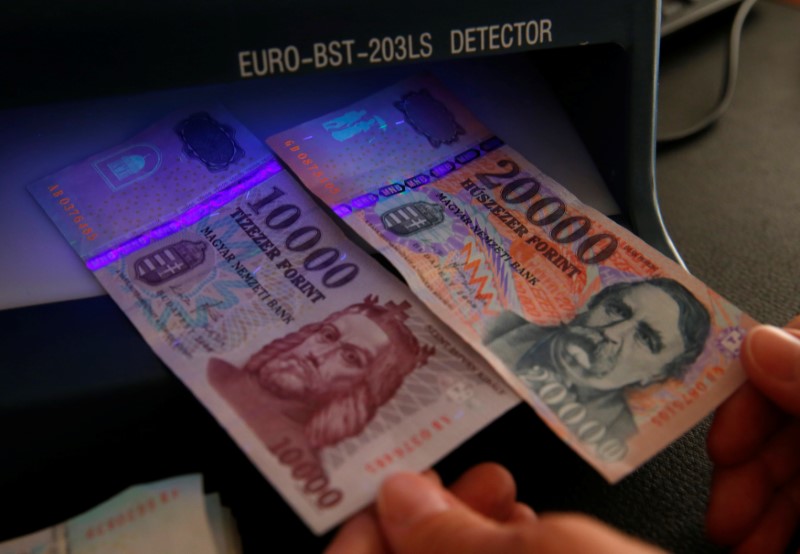BUDAPEST (Reuters) - Hungarian banks say they have spent up to $133 million on a new instant-payments system and won't pass on the cost to customers, but are seeking to recoup part of it by asking the government to ease a financial transaction tax.
Under the new system, due to launch on March 2 after several months of delays, domestic bank transfers worth up to 10 million forints ($33,050) will be settled within five seconds, seven days a week, as the banks respond to increased competition from fintech providers.
Andras Becsei, chairman of the Hungarian Banking Association, said the project - at a total cost of 30-40 billion forints - was the biggest investment the lenders had ever made.
"To make instant payments a success, it is important for local lenders not to be at a competitive disadvantage to foreign service providers," he said, reiterating the banks' call for a tax on financial transactions to be repealed.
Levente Kovacs, secretary general of the association, said banks had struck a gentlemen's agreement with the central bank that customers would not face increased charges to cover the cost of the new system.
But the association - including OTP Bank (BU:OTPB) and foreign players such as Austria's Raiffeisen (VI:RBIV), Belgium's KBC Groep (BR:KBC) and Italy's UniCredit (MI:CRDI) - said the government should reduce the annual tax by 10 billion forints ($33 million) to take account of their extra costs.
The financial transaction tax is expected to raise 226 billion forints this year. The finance ministry did not immediately reply to a Reuters request for comment.

The association said the sector's net profit rose by 10% to 560 billion forints in the first nine months of 2019 as lending expanded by 20%.